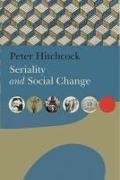Read more
Can revolution unfold in chapters? Seriality has long shaped how we read, think, and act; Peter Hitchcock explores how it structures both knowledge and social change. From Karl Marx's decision to publish
Capital in serial form to contemporary adaptations in manga and graphic novels,
Seriality and Social Change examines how serialization both democratizes knowledge and shapes the very process of social transformation. Peter Hitchcock delves into the paradox of the serial: while it can expand access to radical thought, it can also impose structural limits, slowing or containing the revolutionary potential it seeks to unleash.
Through a sweeping analysis that links literature and political economy, Hitchcock explores how serialized narratives frame, sustain, or even hinder movements for change. Does seriality mirror the mechanics of capitalism, or can it be a tool for subverting them? Engaging with this question across genres and forms,
Seriality and Social Change invites readers to rethink how revolution is told and imagined over time.
About the author
Peter Hitchcock teaches literature, film, and theory at the City University of New York (CUNY). He is also the associate director of the Center for Place, Culture, and Politics at the CUNY Graduate Center. His published books include
Labor in Culture; or, Worker of the World(s),
The Long Space,
Imaginary States, and
Dialogics of the Oppressed.

